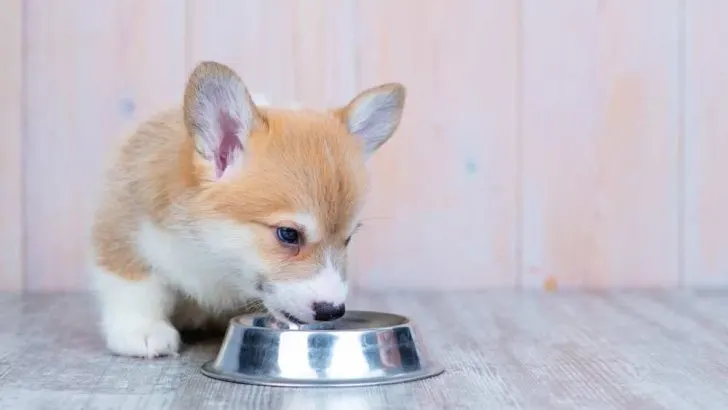Raising a puppy is one incredibly gratifying experience. The love that you give is returned tenfold and all your efforts become building blocks for a friendship that will last many years to come. But, no one ever said this journey is easy.
On the contrary.
As all dog owners know, raising a puppy into a full-grown healthy dog is not unlike raising a child. And much like the nutrition of our children should be kept under close scrutiny, feeding a puppy should get the same level of care and attention.
That brings us to our favorite breed – Corgis – that are incredibly lively, can’t stay in one place for a minute, burn tons of calories, and always seem to be hungry.
But, are corgis always hungry? How often do corgis eat? Does this cute breed know something like too much delicious food?
Let us try to find out the answers to these questions.

Are Corgis Always Hungry?
Above, in the introduction, I have mentioned that Corgis always seem to be in a mood for a good treat. In this case, our impressions are absolutely true.
In the world of dogs, Corgis can be best described like that one friend who comes at the party, brings tons of food, eats most of eat, and spends an entire night talking about cheese, dips, flavors, and spices. This is by no means a bad thing.
After all, we all have that hidden gourmand in ourselves.
The problem with our Corgis is that unlike humans, they don’t know when the party is over, don’t see the need to get good exercise, and don’t counterbalance these guilty days with a period of fasting.
Even when they are full they will look at a bowl of dog kibble and think – “Sure, why not?”
This situation is not made any easier by the fact that dog owners often use treats, cookies, and snacks to teach their puppies to do various tricks and help them master their daily routines. Corgis, on the other hand, are a highly motivated breed and take these gifts without a second consideration.
This behavior can develop into a bad habit and, eventually, cause obesity.
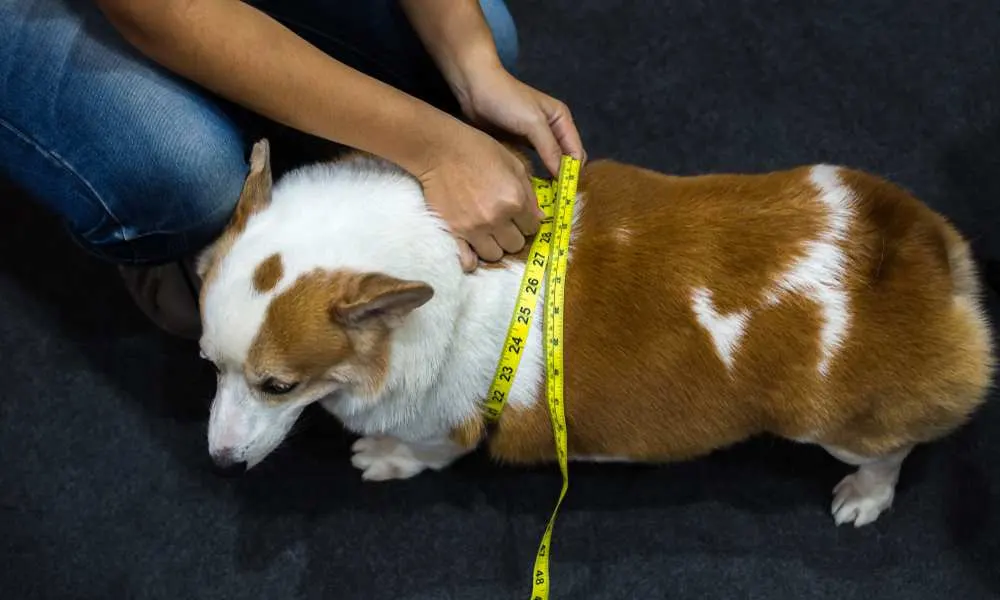
The Dangers Of Corgi Obesity
Now that we got to learn about the hedonistic side of our favorite puppies we need to see what exactly are we dealing with here? And the danger is clear and indeed very present.
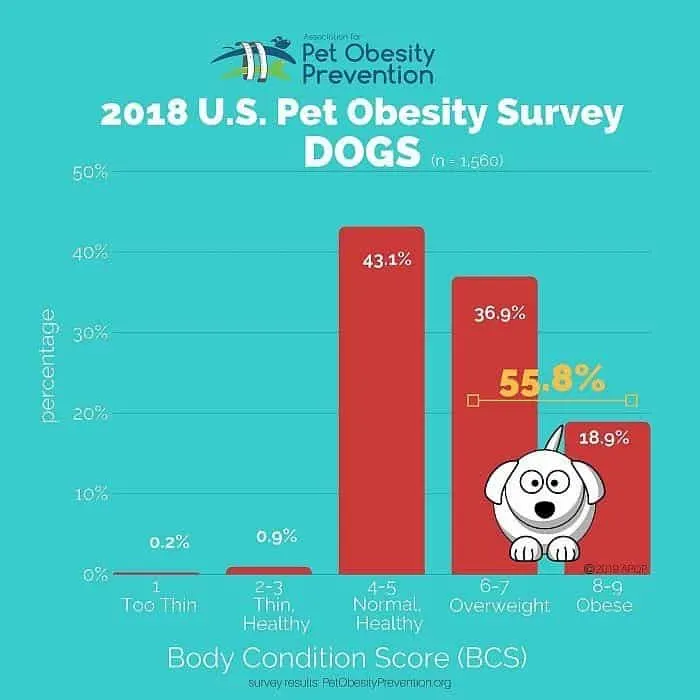
As we can see from the image above, the 2018 US pet obesity survey says that as much as 55.8% of dogs are either overweight or straight-up obese. Taking into consideration the eating habits of our favorite pets, we can with all conscious nudge these numbers even higher.
What are the health risks associated with these poor nutritional habits?
The list of threat includes the following issues:
- Damage to joints, bones, and ligaments
- Sugar diabetes
- Increased blood pressure and other heart diseases
- Heavy breathing
- Decreased stamina
- Decreased liver function
- Increased surgical risk
- Digestive disorders
- Decreased immune functions
- Increased risk of cancer
- Decreased quality of price
We really hoped this list would be shorter. But, it’s not. We even left out some of the mentions. So, letting our cute little Corgis eat unchecked whenever they feel like it (which is pretty much always) produces some very dire consequences.
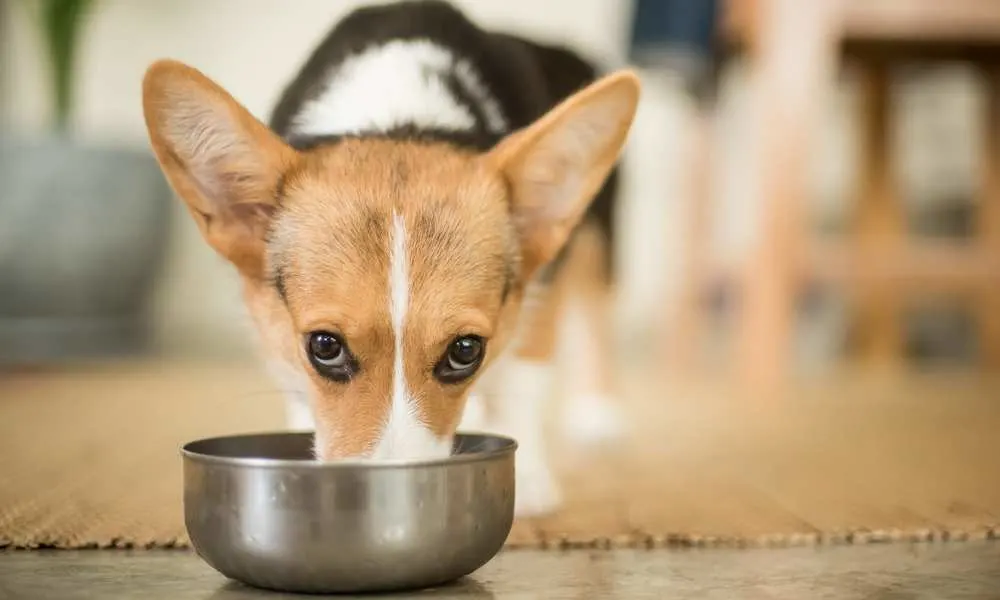
How Often Do Corgis Eat?
Now that we answered the question are Corgis always hungry (which is yes), let us now move to our other main topic – how often do Corgis eat and what we can do to keep them away from obesity.
This problem is made a bit more complicated by the fact that corgis of different ages don’t have the same nutritional requirements.
Also, recommended Corgi’s food requirements vary by:
- The amount of activity the dog gets during the day
- The number of additional treats
- Other additions to overall caloric intake
- The current weight of the dog
- The current season
- Is the dog male or female
So, the recommendations we are going to give you may need alterations. So, we highly recommend that you consult your veterinarian of choice before committing your puppies to any kind of diet. It’s always good to see what professionals have to say.
Keeping that in mind…
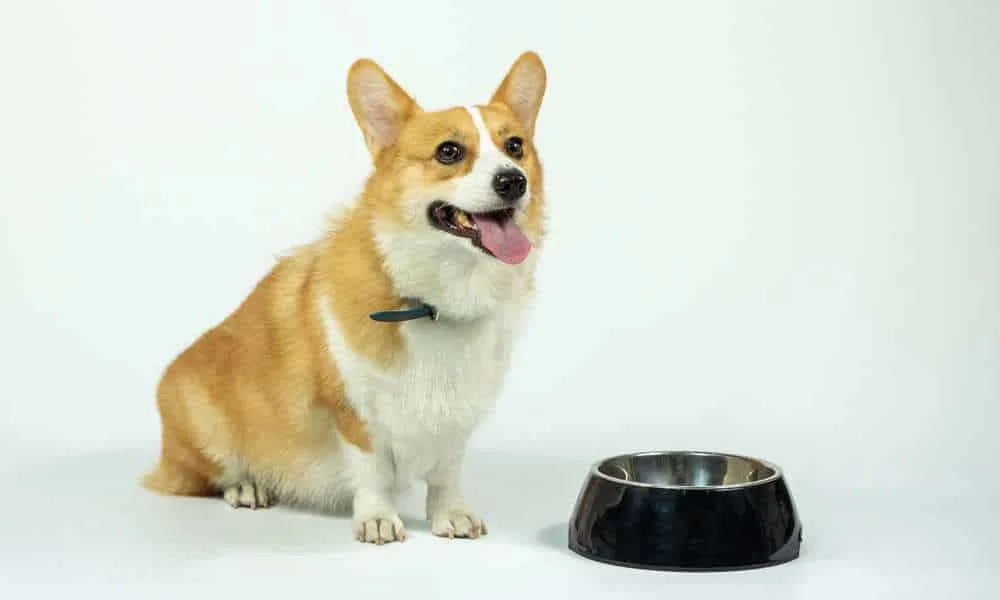
How Often To Feed Corgis Of Different Ages?
All dogs, regardless of their breed, need to eat more when they are young and Corgis are really no exception. They are more active, burn more calories, and need more healthy nutrients to grow into strong and healthy dogs.
So, you can feed your Pembroke Welsh and Cardigan Corgi puppies with four bowls of food in a day without worrying they will pack excessive weight.
As time goes by, dogs become less active and their growth slows down, these servings will need to drop. So, here is a short guideline for the following months and years:
- Puppies between 3 and 6 months should eat no more than 3 full-sized meals per day.
- Once the puppies pass the age of 6 months and before they celebrate their first birthday they should eat two meals every 24 hours. Feeding the dogs once in the morning and once in the noon will help them to properly distribute the calories and spread the energy throughout the day.
- As soon as your puppies pass their first birthday, you should cut their daily food intake to only one bowl of food per day. However, depending on daily activities, and other similar factors you may opt to serve your dog with two lighter meals instead.
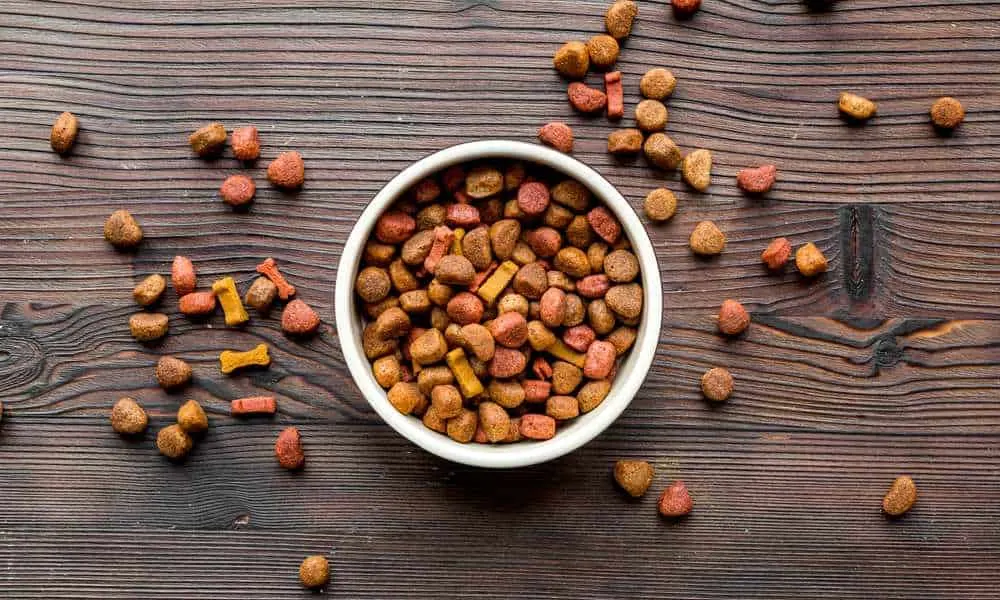
How To Approach Different Types Of Corgi Food?
Abiding by the recommendations we gave you above will get you far in keeping your puppies full, happy, and in good shape but there are still a couple of other things you should take into account to get the best results.
Here, we will quickly cover how you should approach different types of Corgi food.
- Kibbles – Kibbles are very popular amongst Corgi owners because they pack all the important nutrients important for healthy development. However, they do come in big chunks which cause puppies to swallow them before they are properly chewed. So, be sure to cut them into smaller pieces before serving.
- Wet food – Wet food definitely has its benefits. However, this particular type of food spoils more easily, does not provide teeth cleaning effect, and causes loose stool in some dogs. In our opinion, these negatives are best counterbalanced if you mix wet food with kibbles. Since these meals will be very caloric it’s best to split them into several smaller servings.
- Raw food – Raw-food or all-natural ingredients have gained much popularity over the last couple of years since this type of food is evolutionary the most suitable for the canine world. But, bone fragments and other similar ingredients can present a slight problem for smaller animals. So, keep it away from your puppies before they develop sufficient jaw strength.
- Homemade diet – This food group includes specifically prepared meals but also the leftovers we tend to serve to our pets. In the latter case, you should be very careful since ingredients that are suitable for humans can prove to be quite dangerous for Corgis. For instance, the risk of food poisoning from raw meats is much lower for you and your family than it is for dogs. So, if you want to cook for your dogs, use trusted recipes, and cook separately from your own meals.
As we can see, all these foods have some distinct advantages but can’t be served to your dogs without any previous consideration. Balancing their nutritional values and mixing the ingredients to get the optimal intake is the only way to grow your Corgi puppies in strong, healthy dogs.
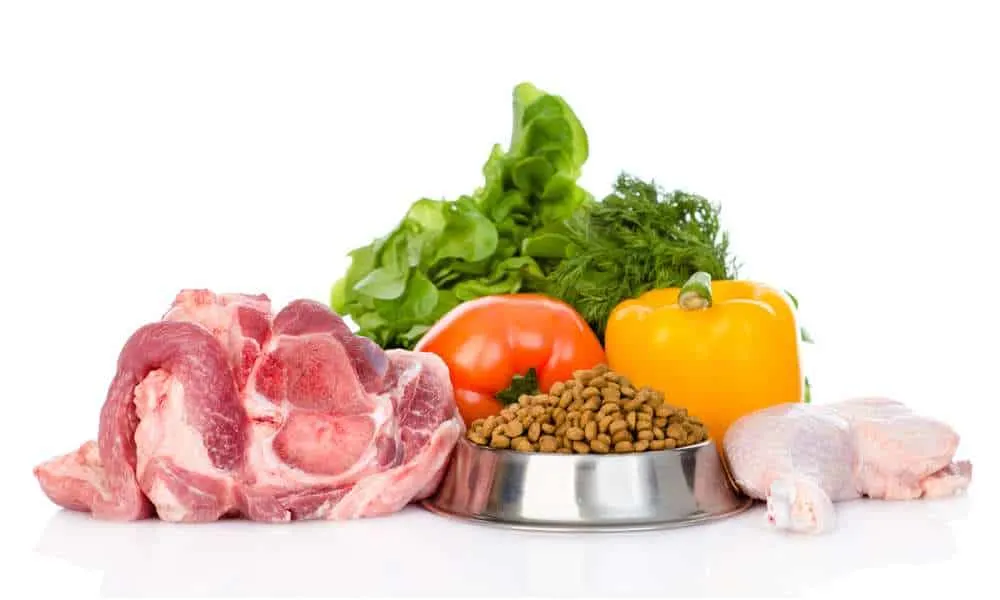
Guidelines For A Healthy Corgi Diet
The nutritional needs of an average Corgi are really not rocket science. Much like all other smaller dog breeds, adult Corgis weighing up to 25 pounds require an average caloric intake of 780 calories. As we mentioned above, puppies and young adult dogs need more fuel for growth so, in their case, we can push these numbers to 733 calories per day or even more (if they get a lot of exercise).
But, as you already know, not all calories are made the same. So, you really need to pay attention to what you are serving as much as how much and how often you are feeding your dogs. Keeping your Corgis happy, healthy, and energetic will require a special focus on the following nutrients:
- Vitamin A
- Vitamin C
- Beta-carotene
- Calcium
- Phosphorus
- Magnesium
With this in mind, here are the recommendations for the ingredients you should use as a base for your dogs’ diet (and a couple of things to stay away from):
- Protein – Protein is an essential building block for successful muscle growth and a pillar of any healthy diet, so it shouldn’t be too much of a surprise that your Corgi pups should consume this nutrient as well. While concentrated meals (meats from which the moisture has been removed) are perfectly ok as a rich protein source, we still prefer whole foods like chicken, fish, beef, and lamb.
- Fat – In order to grow and stay healthy, your puppies will also need quite a lot of fat. Now, fatties food can be a double-edged sword so be extra careful with this food. Of course, the best fatty you can ever serve to your puppies are omega-3 fatty acids or to be more precise Docosahexaenoic acid which is essential for proper dog growth. Good replacement comes in the form of medium-chain triglycerides that can be found in coconut oil. Beef, lamb, and chicken come in third place.
- Stay away from – Essentially, being born as carnivores dogs should really avoid cereals. And whilst some of them like rice, oats, and barley can be used in moderation the same can’t be said for wheat, soy and corn. But, as a source of healthy carbohydrates, we would much rather use sweet potatoes than any of these groups.
Other nutrients like veggies present a good source of valuable nutrients but don’t belong to either of these two groups.
Learn More: How much food to feed a corgi?
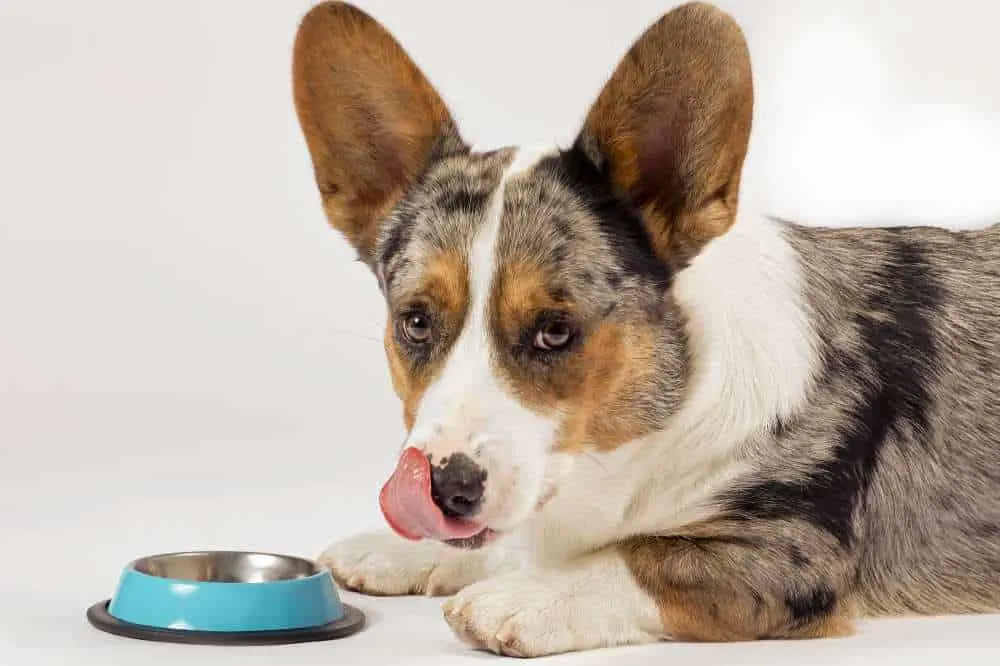
What To Do If Corgis Still Feel Hungry Or Won’t Eat?
Both these situations are a real problem since maintaining a healthy diet means your pets need to follow the rules we provided above which they are not always willing to do.
So, if your Corgis still feel hungry even after eating their prescribed meals (actually, you should get used to this situation) you should encourage the puppies to eat slower with the tools like slow feeder bowls. The other method would be to take a couple of kibbles out of the meal and use them as treats throughout the day.
In the less probable scenario where your Corgi puppies won’t devour whatever you throw in front of them, you should try offering some palatable wet food. Also, you can try out different ingredients, use a food topper, and exercise your pup more. But, in any case, be sure to visit the vet.
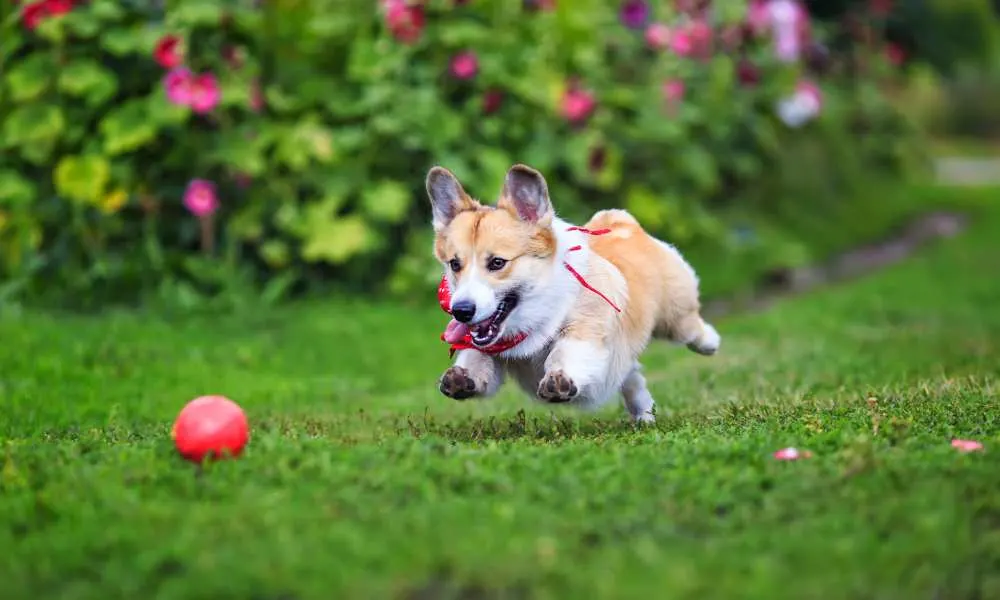
How To Help Your Corgis Put On/Lose Some Weight?
The eating disorders we have mentioned just above can cause your puppies to pack excessive weight or become underfed.
So, if you want your Corgis to get back in shape and lose a couple of pounds, you should start by increasing their daily exercise and taking away some more caloric ingredients with veggies. If that doesn’t work gradually reduce the meals and cut the treats altogether.
In the case your puppies need to gain some weight, increase their cup servings by 1/4. Don’t do that overnight. Let the dogs adjust to increased servings.
Also, you should try out the ingredients that are more calorically-dense like concentrated meals. Finally, a moderate increase in daily activity can serve as a spark that will ignite your dog’s appetite. But, once again this is a situation where you should consult a vet.
See Also: Are Corgis Naturally Fat?
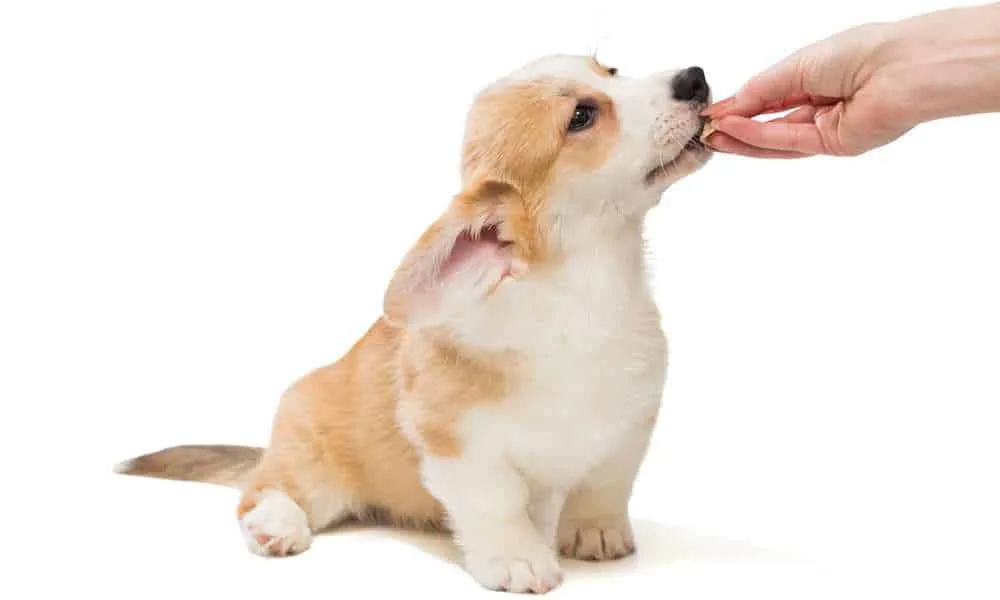
Conclusion
We hope this breakdown provided you with all the essential tips and tricks necessary for keeping your Corgis healthy and in good shape.
Being such an active, lively, and ever-hungry breed Corgis are very prone to various eating disorders that can eventually damage their health.
The responsibility for their well-being is in your hands. Rest assured, your efforts will be returned with friendship, love, and affection.

